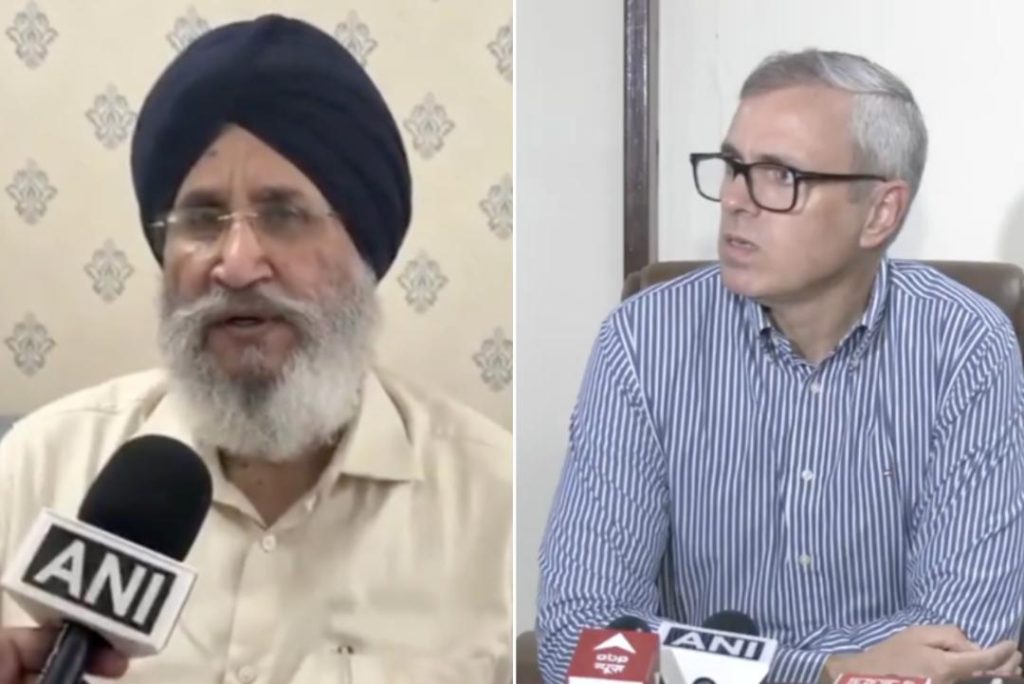
J&K CM’s remark on water sharing unreasonable: Akali Dal leader
The recent statement by Jammu and Kashmir Chief Minister Omar Abdullah, stating that his state will not share any water with Punjab, has sparked controversy and criticism from various quarters. One of the prominent voices to condemn Abdullah’s remark is Shiromani Akali Dal leader Daljit Singh Cheema, who has called the comment “unreasonable” and “unjustified”.
In an interview, Cheema expressed his disappointment and surprise at Abdullah’s statement, saying that they did not expect him to comment on Punjab’s water rights. He emphasized that the river water distribution has historically favored other states like Rajasthan, Haryana, and Delhi, and therefore, it was unfair to single out Punjab.
Cheema’s comments are not without merit. The Indus Waters Treaty, signed in 1960, is a bilateral agreement between India and Pakistan that governs the sharing of the waters of the Indus River and its tributaries. According to the treaty, the waters of the eastern rivers (Ravi, Beas, and Sutlej) are allocated to Punjab, while the waters of the western rivers (Jhelum, Chenab, and Indus) are allocated to Pakistan.
However, over the years, there have been several instances where other states, including Rajasthan, Haryana, and Delhi, have received water from the eastern rivers, which are supposed to be reserved for Punjab. In fact, the Bhakra-Nangal dam, built on the Sutlej River, is one of the largest dams in the country and supplies water to several states, including Punjab, Haryana, and Rajasthan.
Cheema’s criticism of Abdullah’s remark is also fueled by the fact that Punjab has historically been a water-scarce state, and any reduction in its water share could have significant implications for its agriculture and industry. Punjab is often referred to as the “breadbasket” of India, and its agricultural sector is a critical component of the country’s food security.
In recent years, Punjab has been facing a severe water crisis, with the state’s water table declining rapidly. The state’s agricultural sector is heavily dependent on groundwater, which is being depleted at an alarming rate. The situation is so dire that the state government has been forced to impose strict restrictions on the use of groundwater, and there are concerns that if the situation is not addressed, the state’s agricultural sector could be severely impacted.
In light of these facts, Abdullah’s comment that Jammu and Kashmir will not share any water with Punjab seems unreasonable and unjustified. It is unfair to expect Punjab to bear the brunt of the water crisis in the region, while other states continue to receive water from the eastern rivers.
Cheema’s criticism of Abdullah’s remark is not limited to the fact that it is unfair to Punjab. He has also pointed out that the comment is a clear violation of the Indus Waters Treaty, which guarantees the water rights of Punjab and other states in the region. The treaty is a legally binding agreement, and any attempt to unilaterally alter its provisions is illegal and unjust.
In conclusion, Daljit Singh Cheema’s criticism of Jammu and Kashmir Chief Minister Omar Abdullah’s remark on water sharing is well-founded. Abdullah’s statement is unreasonable and unjustified, and it is a clear violation of the Indus Waters Treaty. The water crisis in the region is a complex issue that requires a comprehensive solution, and it is unfair to expect Punjab to bear the brunt of the crisis alone.






